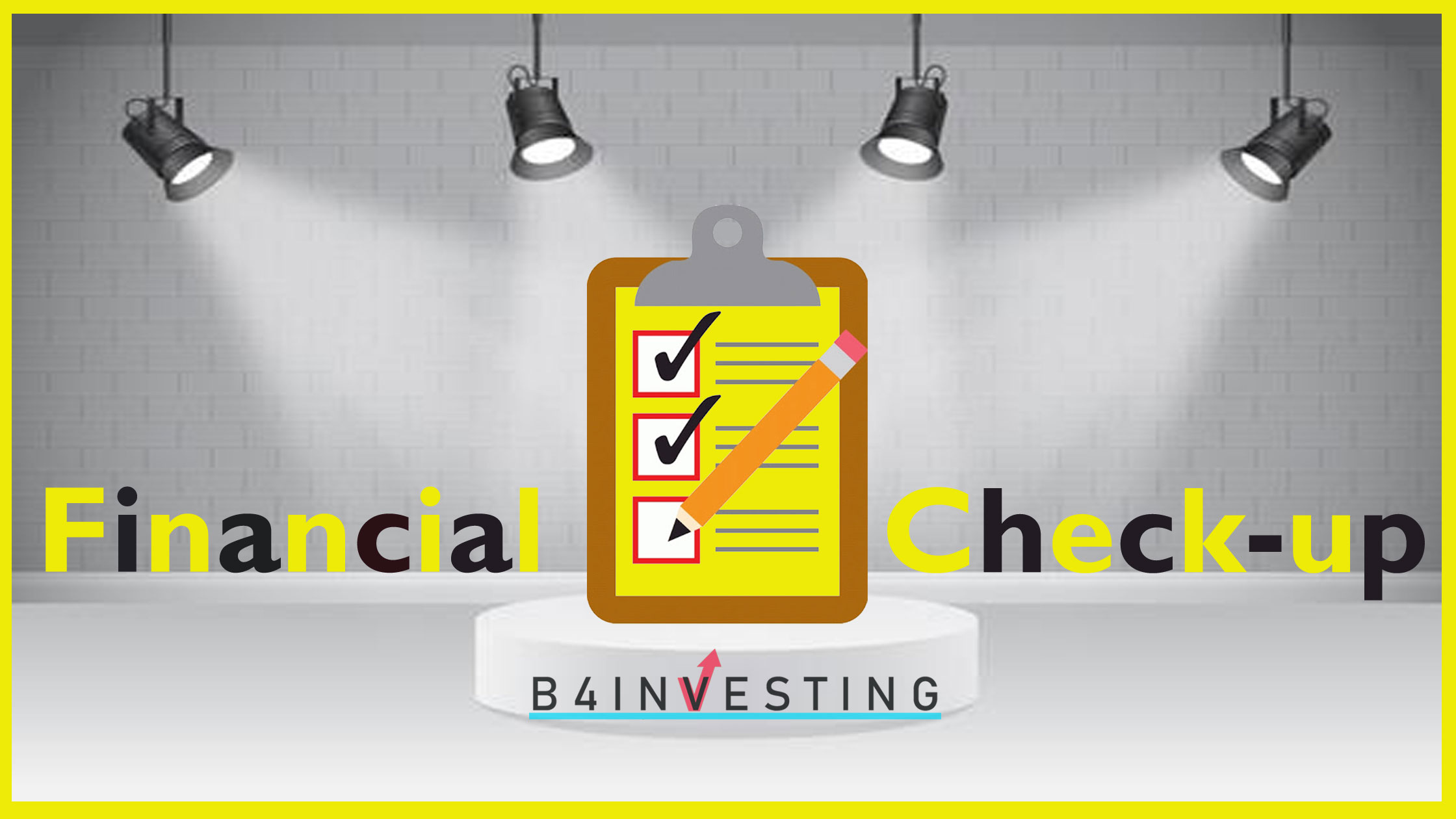
How to Conduct a Financial Check up?
In year 2020, pandemic taught us many lessons and we are still learning many in 2021. COVID made a person cautious about his and his family’s health. The lifestyle we used to live before pandemic is totally different than what lifestyle we are living in this pandemic. We are spending more time with family and giving attention to health of each and everyone in family. At the end, golden rule of today’s life is- “HEALTH IS WEALTH”. People understood the importance of health insurance.
But we also understood the importance of savings. As we can see, few people are working from home but for few people who have to work live, like hotel industry which cannot be run sitting at home as guests have to check-in hotel for hotel owner to generate revenue.
So, everyone is facing different issues due to COVID situation. Savings, insurance, correct selection of investment, correct planning of finances is very important. How we check the road map while travelling if route is correct or no, we need to conduct financial check up too. Financial check-up is like asking simple questions to yourself like,
- Are you saving money?
- Do you have a life insurance?
- Are your properties insured?
- Does everyone in your family have health insurance?
- How much do you need to save?
- What are your future plans?
- Why would you need money in future like for child’s education, travelling, buying a home, buying a car?
- Do you have any plan for saving for retirement life? etc, etc.
Also Read:

So, many questions are there which you need to consider for financial checkup. And, this set of questions change when you take important decision in life like marriage, child birth, divorce, etc. So, you need to do financial check up regularly. There are many aspects which you need to consider. Let’s read about it:
- Evaluate Changes in Your Life: Changing a job, relocating to other city, getting married, having a child, divorcing, retiring can play an important role in financial health. If any of above or other change occurs in your life then you need to re-evaluate your financial health.
- Emergency Fund: If you are keeping salary of 6 months as emergency fund then is it enough for you, your family? You may need emergency fund for medical urgency.
- Financial Goal: Have you penned down your financial goals like child’s marriage, child’s education, retirement planning, buying a car, buying a house, etc.?
- Budget: Are your expenses more than your income? You need to monitor budget monthly. Budget is how you are handling income and expenses. Expenses should always be less than income so you can save money to fulfil financial goals. Many people write monthly expenses on paper to evaluate how much exact money they need monthly so they can plan budget properly for next month.
- Debt: Are you paying all your EMIs on time? Loan for buying house or a car, credit card come under debt.
- Insurance: Are you, your health, your properties insured? You need to plan insurance and pay premium time to time. You need to review your insurance policies time to time. Like, is life insurance cover all expenses of family after you.
- Savings: Are you saving enough? You need savings so you can build your asset, you can plan a family holiday, you can buy a car, you can invest. Saving is very important. Best way to save money is to put savings on auto mode like some part of your income will be saved automatically so you spend less money.
- Calculate Net Worth: Add value of all your assets, minus debt from it. You get net worth. This number is very importance to track your progress. When you have a large debt or liability to be paid, this number is less and you have to reduce debt so you can increase your net worth.
- Tax Planning: Are you having proper tax planning? If not then you can review tax planning for next year. You can save tax by proper planning. Your investment planner or advisor can help you with tax planning.
- Retirement Planning: Retirement planning is very important as you need to have enough money to take care of your expenses along with your medical health check ups, any medical emergency if it arises.
- Evaluate Return on Investment: Calculate the return on each investment which you have purchased like each and every stock, mutual fund, bond. If it’s not giving satisfactory return then you can remove money and invest somewhere else.
- Estate Planning: Estate planning is making a will, setting up a trust, making nomination, life insurance come under estate planning. You need to evaluate this too in financial check up.
If you have any doubt or if you don’t understand anything about financial check-up then you can ask trustworthy financial advisor as they have detailed knowledge of evaluating your risk capacity, financial goals and make proper financial plan, tax saving plan and invest money according to that.
Also Read:

